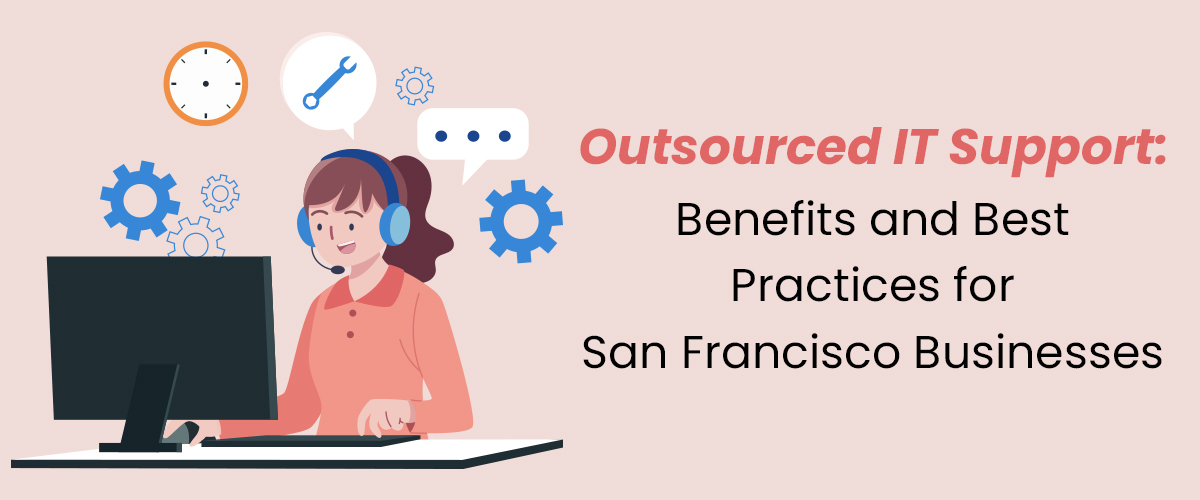Outsourced IT support is a popular option for companies of all sizes who want to focus on their core business functions while leaving the technical details to experts. IT support outsourcing can provide a range of benefits, including cost savings, improved efficiency, and access to specialized skills and knowledge.
One of the main advantages of outsourcing IT support is cost savings. By outsourcing, companies can reduce the need for in-house IT staff, which can be expensive to hire and maintain. Outsourced IT support providers often offer flexible pricing models, allowing companies to pay only for the services they need, rather than investing in expensive hardware and software.
Another advantage of outsourcing IT support is improved efficiency. Outsourced providers have the expertise and resources to quickly resolve technical issues, allowing companies to focus on their core business functions. Additionally, outsourced IT support providers can often provide 24/7 support, ensuring that technical issues are addressed quickly and efficiently.
Understanding Outsourced IT Support
Outsourcing IT support can bring many benefits to a company, such as cost savings, increased efficiency, and access to specialized expertise. However, it is important to understand the different models of IT outsourcing and evaluate the company’s IT support needs before making a decision.
Benefits of Outsourcing IT
One of the primary benefits of outsourcing IT support is cost savings. By outsourcing, companies can reduce labor costs associated with hiring and training in-house IT staff. Additionally, outsourcing allows for more predictable IT costs, as companies can negotiate fixed fees with their IT service providers.
Another benefit of outsourcing IT support is access to specialized expertise. IT service providers often have a team of experts with a variety of skills and experience, which can be more cost-effective than hiring a full-time, in-house IT staff. This can be especially beneficial for small and medium-sized businesses that may not have the resources to hire a full-time IT staff.
Outsourcing IT support can also increase efficiency. IT service providers can often provide faster response times and 24/7 support, which can help minimize downtime and reduce the risk of data loss or security breaches.
Evaluating IT Support Needs
Before outsourcing IT support, it is important to evaluate the company’s IT support needs. This includes assessing the company’s current IT infrastructure, identifying areas of weakness or inefficiency, and determining the level of IT support required.
Companies should also consider the level of control they want over their IT operations. Outsourcing IT support can provide more flexibility and scalability, but it also requires relinquishing some control over IT operations to the service provider.
The Competitive Business Landscape in San Francisco
As a San Francisco-based business, we understand the competitive nature of the city’s business landscape. The technology industry dominates the local economy, and businesses must keep up with the latest trends and innovations to stay ahead of the competition. This is where outsourced IT support comes in.
Outsourcing IT needs to a reliable service provider can help businesses focus on their core operations while leaving the technical aspects to experts. This can lead to increased productivity, reduced costs, and improved customer satisfaction.
However, with the increasing reliance on technology comes a higher risk of cyber attacks. San Francisco businesses are no exception to this, and it is essential to have a robust IT security system in place. Outsourced IT support providers can offer expertise in this area, providing businesses with the latest security measures to protect against cyber threats.
The competitive nature of the San Francisco business landscape means that companies must always be looking for ways to gain an edge. Outsourcing IT services can provide access to the latest technology and innovations, giving businesses a competitive advantage. This can include cloud computing, data analytics, and artificial intelligence, among others.
In summary, outsourced IT support can help solve several business problems in the competitive business landscape of San Francisco. From improving productivity and reducing costs to providing the latest security measures and access to innovative technology, outsourcing IT needs can be a valuable investment for businesses.
Selecting an IT Support Provider
When it comes to selecting an IT support provider, there are a number of factors to consider. We have compiled a list of criteria that we believe are important for businesses in San Francisco to keep in mind when selecting an IT support provider.
Criteria for Choosing a Provider
- Expertise: Look for an IT support provider that has experience in your industry and can provide the specific services that your business needs. This will ensure that they have the expertise to handle any issues that may arise.
- Availability: Your IT support provider should be available 24/7 to handle any emergencies that may occur. Make sure to ask about their response times and how they handle after-hours support.
- Communication: Communication is key when it comes to IT support. Look for a provider that has clear communication channels and is easy to get in touch with.
- Cost: While cost should not be the only factor in your decision, it is important to find a provider that offers fair pricing for their services. Make sure to ask about their pricing structure and if there are any hidden fees.
- Reputation: Do your research and look for a provider with a strong reputation in the San Francisco area. Check online reviews and ask for references from other businesses that have worked with them.
Service Level Agreements (SLAs)
Once you have selected an IT support provider, it is important to establish a Service Level Agreement (SLA). An SLA outlines the services that the provider will offer and the level of support that they will provide. It is important to carefully review the SLA and make sure that it aligns with your business needs.
Some key components of an SLA include:
- Response times: The SLA should outline the provider’s response times for different types of issues. For example, a critical issue may require a response within 30 minutes, while a less urgent issue may have a longer response time.
- Service availability: The SLA should outline the provider’s availability and uptime guarantees. This will ensure that your business can rely on their services when you need them.
- Escalation procedures: The SLA should outline the provider’s escalation procedures for more complex issues. This will ensure that any issues are handled in a timely and efficient manner.
Overall, selecting an IT support provider is an important decision for any business in San Francisco. By keeping these criteria in mind and establishing a strong SLA, you can ensure that you have the support you need to keep your business running smoothly.
About Centarus
At Centarus, we provide modern IT solutions for companies that want to stay ahead of the game. Our Managed IT Services, cybersecurity, network, and device management solutions are designed to meet the needs of professional service businesses in San Francisco and beyond.
We offer efficient, reliable, and secure IT Services that help you manage your technology needs with ease. Our Remotely Managed IT and Cybersecurity solution enables us to monitor and maintain your technology, ensuring that we resolve your issues before they escalate into bigger problems.
As a Managed Services Provider, we understand the importance of keeping your business running smoothly. That’s why we offer a range of services that help you stay ahead of the curve, including proactive monitoring, maintenance, and support. Our team of experts is always on hand to help you with any IT-related issues you may have.
We pride ourselves on providing exceptional customer service and support. Our team of experts is available 24/7 to help you with any IT-related issues you may have. We encourage you to get in touch with us to learn more about our services and how we can help your business grow.
Frequently Asked Questions
What examples of IT outsourcing services are commonly provided?
When it comes to IT outsourcing services, there are several areas that are commonly outsourced. These include help desk support, network monitoring and management, software development, data center management, and cybersecurity. By outsourcing these services, companies can focus on their core competencies while leaving the technical aspects to IT professionals.
What are the primary reasons companies choose to outsource their IT support?
There are several reasons why companies choose to outsource their IT support. One of the primary reasons is cost savings. By outsourcing IT support, companies can reduce labor costs and avoid the expense of hiring and training in-house IT staff. Another reason is access to specialized expertise. IT outsourcing companies have a team of professionals who are experts in their respective fields and can provide specialized services that may not be available in-house. Additionally, outsourcing IT support can provide scalability and flexibility to meet changing business needs.
In San Francisco, CA, where many startups and small businesses are located, outsourcing IT support can be particularly beneficial. These companies often have limited resources and budgets, making it difficult to hire and maintain a full-time IT staff. By outsourcing IT support, they can access the expertise they need without the added expense of hiring and training in-house staff.
Overall, outsourcing IT support can be a cost-effective and efficient way for companies to manage their technical needs.





